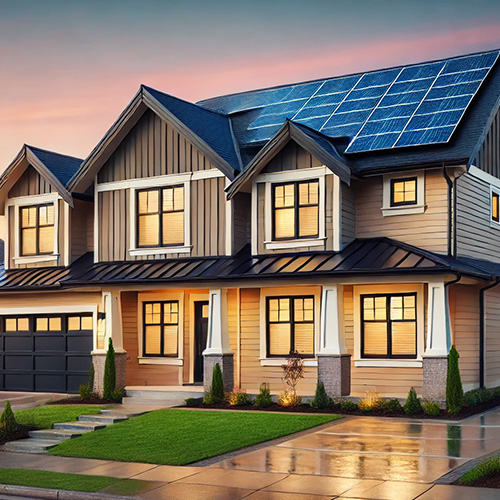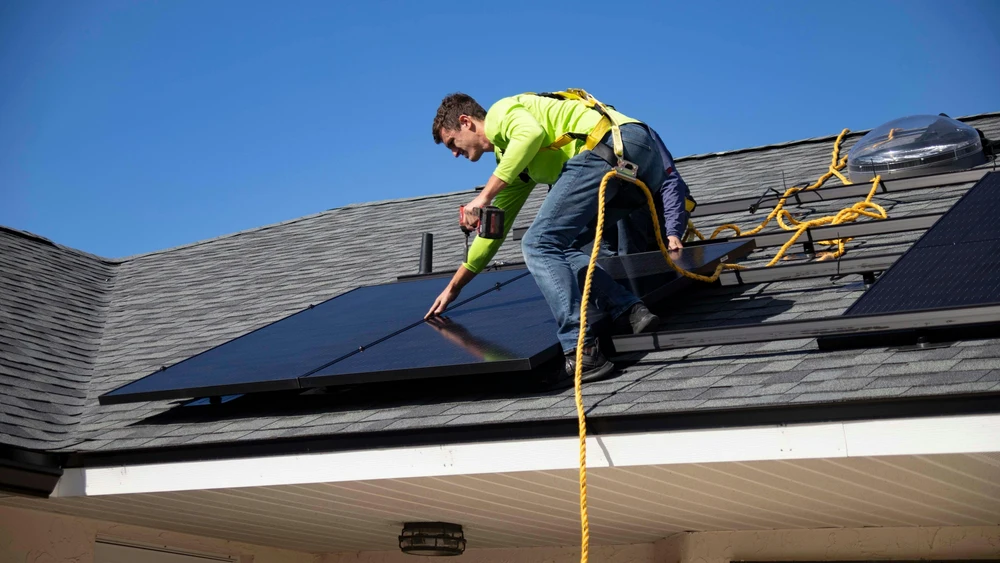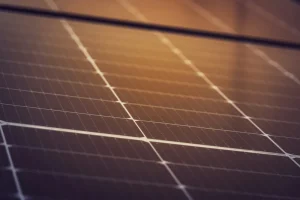Switching to solar energy is a significant decision, and like any major change, it comes with its share of questions and concerns. Many homeowners hesitate to make the switch due to misconceptions about solar energy’s cost, efficiency, and reliability. To help you make an informed decision, we’ve compiled answers to some of the most common objections and misunderstandings about solar power. Whether you’re worried about the cost, maintenance, or the impact on your home’s aesthetics, we’re here to provide clarity and peace of mind.
“I’ve always been interested in switching to solar energy, but I’m worried about the cost. I’ve heard that installing solar panels can be really expensive, and I’m not sure if it’s something I can afford. Is solar energy really too expensive for the average homeowner?”
Contrary to popular belief, solar energy is more affordable than ever. Advancements in technology have significantly reduced the cost of solar panels and installation. Additionally, there are numerous government incentives and tax credits available that can lower your initial investment by up to 30%. Many homeowners find that they can save money on their electricity bills from day one, and various financing options allow you to spread the cost over several years. To explore the cost-saving potential of solar energy for your home, get a personalized solar quote from our experts.
“I live in an area where it’s often cloudy and rainy, and I’m concerned that solar panels wouldn’t be effective. How well do solar panels work in these conditions?”
Yes, solar panels are still effective in cloudy or rainy weather. Modern solar technology is designed to generate electricity even when sunlight is diffused through clouds. Countries with less sunny climates, like Germany, are among the top solar energy producers in the world. This means that even if you live in an area with variable weather, you can still benefit significantly from solar energy. 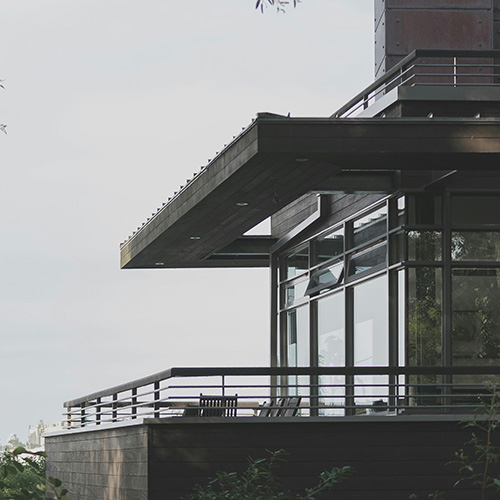
“I’m not very handy and worry about the maintenance required for solar panels. Do they need a lot of upkeep?”
Solar panels require very little maintenance. Most systems only need occasional cleaning to remove dust, leaves, or snow. Annual inspections by a professional can ensure your system is running efficiently and catch any potential issues early. Many solar providers offer maintenance packages or warranties that cover regular check-ups and repairs, making it easy to keep your system in top condition. 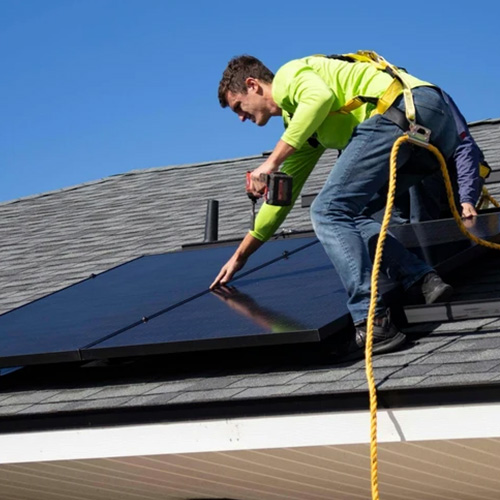
“I’m concerned about the impact of installing solar panels on my roof. Will they cause any damage?”
When installed by qualified professionals, solar panels do not damage your roof. In fact, they can protect the portion of the roof they cover from the elements, potentially extending its lifespan. The installation process involves securing the panels with mounts that are designed to be weatherproof. Before installation, your roof will be assessed to ensure it’s suitable for solar panels. For more information on roof suitability and installation procedures, schedule a consultation with our team.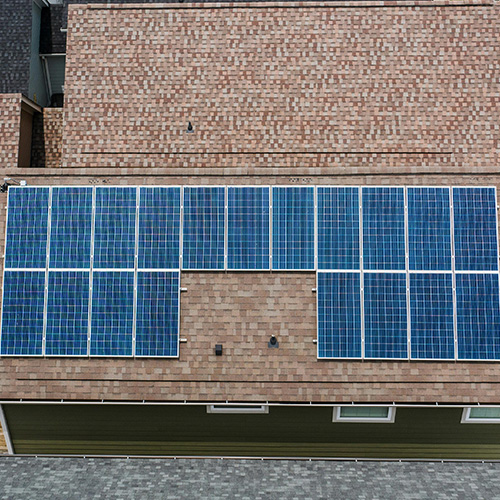
“I’ve heard that solar energy can be unreliable, especially at night or during bad weather. Is this true?”
Solar energy systems are highly reliable and come with warranties that typically last 20-25 years. Most systems have very few moving parts, reducing the likelihood of mechanical failure. Moreover, with the addition of a battery storage system, you can store excess energy generated during sunny days for use during the night or cloudy days, ensuring a constant energy supply.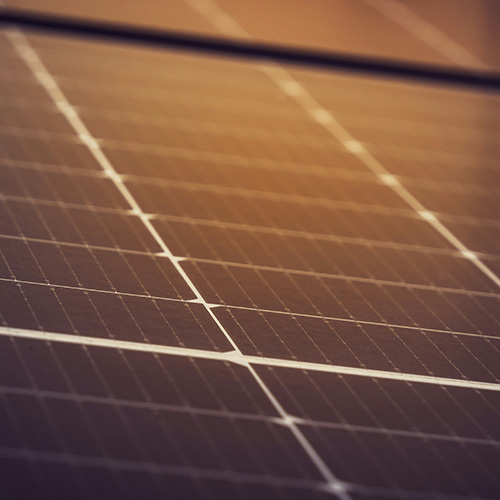
“I live in a region that doesn’t get a lot of sun. Can I still benefit from installing solar panels?”
While sunnier locations do generate more energy, solar panels can be effective in a variety of climates. Even in less sunny areas, solar energy can still provide significant savings. For instance, many homeowners in the northern United States, which have fewer sunny days, still see substantial reductions in their energy bills.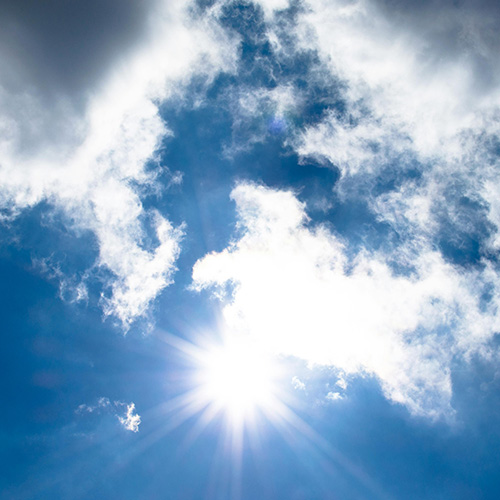
“I’m planning to sell my home in a few years. Will having solar panels make it harder to sell?”
Homes with solar panels often sell faster and at higher prices. Buyers are increasingly interested in energy-efficient homes, and the prospect of lower utility bills can be a major selling point. Solar panels are seen as an upgrade, much like a renovated kitchen or bathroom, adding value to your home. 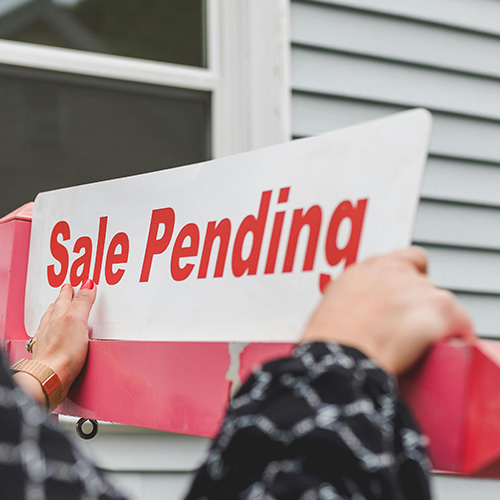
“I’ve heard mixed things about how much energy solar panels can actually produce. Can they really power my entire home?”
Yes, a properly sized solar energy system can meet all your home’s energy needs. The first step is conducting an energy audit to determine your household’s energy consumption. Based on this, a solar provider can design a system tailored to your requirements. Many homeowners achieve energy independence with solar, reducing their reliance on the grid. Interested in maximizing your home’s energy efficiency? Get started with an energy audit from our specialists.